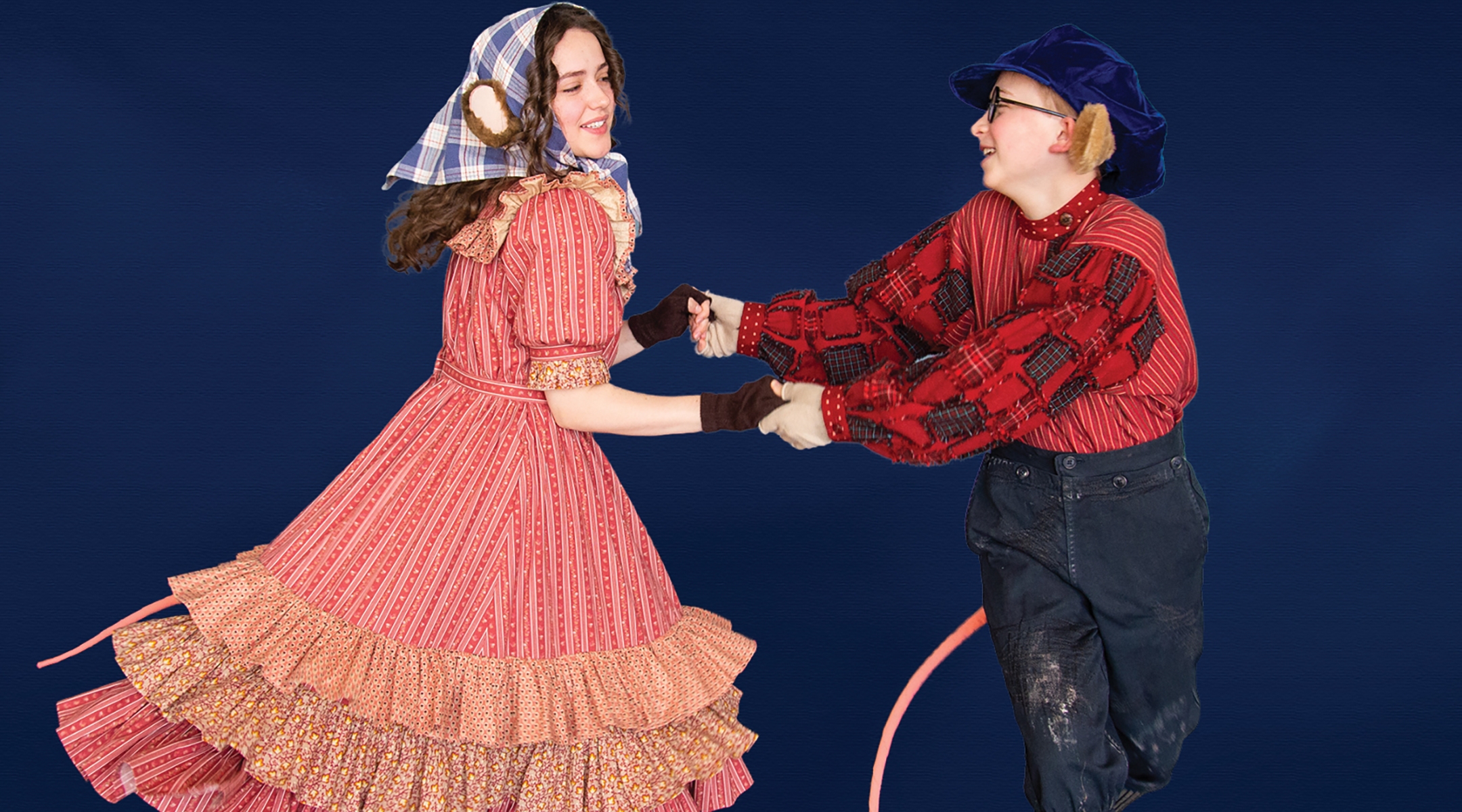‘An American Tail the Musical’ is coming — and it’s more Jewish than ever
A debut production with a book by Tony winner Itamar Moses has the Mousekowitzes saying the Shema

Graphic by Angelie Zaslavsky
When An American Tail the Musical debuts later this month, the film’s most famous song will be preceded by the central prayer of Judaism.
Towards the end of Act I, a young mouse named Tanya is getting ready for bed. She is adamant that her brother Fievel, lost in a storm just before their family arrived in America, is alive somewhere in Manhattan. Tanya’s mother tells her to say a Shema for him and, not too far away, Fievel finishes the prayer with “Adonai echad,” the Lord is one.
From there, the famous duet, “Somewhere Out There,” begins. If you’re Jewish, like these mice, this just makes sense. The lyrics have always said “Somewhere out there/ Someone’s saying a prayer.”
1986’s An American Tail, an animated feature about a family of Russian Jewish mice, the Mousekowitzes, who flee cat-led pogroms to start a new life in the United States, has been a staple of American childhoods since its debut, but it hasn’t before been staged as a musical — and certainly not one this Jewish.
Commissioned by the Children’s Theatre Company (CTC) in Minneapolis, the production has a book by Tony winner Itamar Moses (The Band’s Visit) and music by Michael Mahler (Diary of a Wimpy Kid, The Musical) and Alan Schmuckler (Showtime’s Kidding). All three grew up with the material, and Mahler still has a stuffed Fievel in his possession, but its message has only become more timely since.
“Reexploring a story about America’s history as just a patchwork of different immigrant groups felt like an important thing to bring back,” said Moses, who has never before written a play for young audiences.
If the movie was pro-immigrant, it only featured Irish, Italian and Jewish mice. The stage musical hopes to remedy this with a fuller picture of late 19th century New York.

Fievel’s companions still include the street-smart Italian Tony Toponi, but Bridget, the Irish lass from the film, is now an African American mouse of “the Great Mousegration” (mouse puns abound) calling for a revolution against the cats. Quijin, a new character, speaks Cantonese. The creatives were eager to expand the show’s cultural pallet, while making the Jewish tradition in the source material even more explicit.
“It’s been really meaningful to me to bring a lot of my Jewish upbringing musically to the score,” said Schmuckler, who kicks off act one with Hanukkah prayers and added a Shehecheyanu for the Mousekowitz family reunion at the end of the story. “It’s immensely resonant to be a descendant of Russian Jews writing the story about Russian Jews right now.”
Schmuckler and Mahler have diversified the score, adding Irish jigs, ragtime and Americana to James Horner’s original songs, along with some “Itzhak Perlman-style violin” played by Fievel’s father, Papa.
“It all comes together to make this one, new American noise,” said Mahler.
That noise includes clamoring for workers’ rights, an end to income inequality and, of course, welcoming the stranger as part of a bigger push for collective liberation for all mousekind. (In one song, the mice sing “‘whether Cath’lic or Hasidim/ we will taste a kind of freedom.”)
Moses says he was careful not to force anything on the source material that wasn’t already suggested, though he did remove the character of Tiger, the friendly cat voiced by Dom DeLuise, who Moses thinks jumbled the metaphor of cats as universal oppressors.
At its heart, the story, which will be staged with adult actors and children in the roles of Tanya and Fievel, is a fable with obvious echoes to contemporary immigration crises. Moses hopes that the rest of the country will have a chance to receive the show’s message after the show premieres in Minneapolis, itself home to a large Somali immigrant population.
“We really aren’t living up to our sort of credo of being the place people want to and are able to come for a better life,” said Moses. “So in whatever small way this show can speak to that, I want to bring in as many places as we can.”
An American Tail the Musical will play at the Children’s Theatre Company from April 25 to June 18. More information can be found here.

















